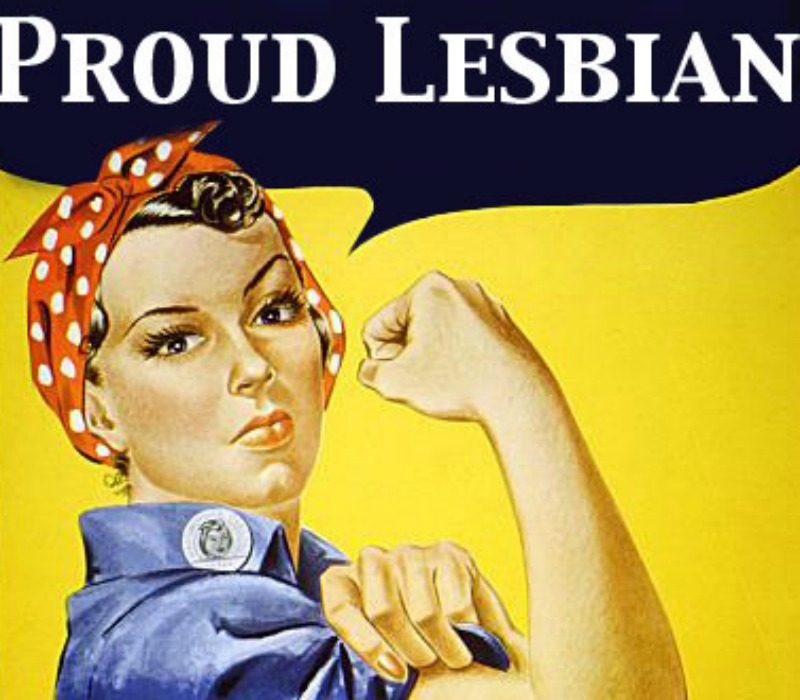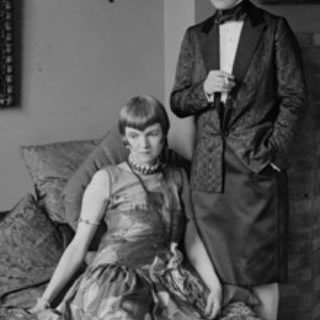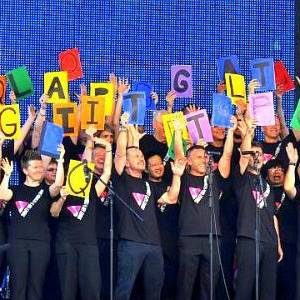 Should we stop using the term “gay” to define our sexuality?
Should we stop using the term “gay” to define our sexuality?
The term ‘lesbian’ is becoming obsolete. Its grave has been dug and a coffin, just large enough to contain the three syllables, has been made from a wooden kayak found by the side of the Thames.
Of course, lesbians – as the word is defined – still exist. In fact, they are thriving. Girl-on-girl affection can be witnessed all over the place from the tube to the train station, to the toilets at the back of that dingy nightclub (which looked much nicer on the outside than it did on the in). But the use of the term ‘lesbian’ itself is becoming more and more infrequent. Why?
The term lesbian was derived from the Greek island of Lesbos. On this island, the 6th Century BC poet, Sappho, was born. Although her poems only survive in fragments, Sappho’s poetry beautifully documents her love and infatuations – sometimes requited, sometimes not – with women. Part of one heartbroken fragment simply reads: “The truth is, I wish I were dead. She left me, weeping often, and she said this, ‘Oh what a cruel fate is ours, Sappho, yes, I leave you against my will.'”
Winsome derivation aside, the majority of female celebrities who publicly came out last year chose to use the term ‘gay’ to define their sexuality. Not ‘lesbian’. Ellen Page was the most notable. In her heart-warming speech at a Las Vegas conference for LGBT teens, the actress said: “I’m here today because I am gay”. Other high-profile women, such as Casey Stoney and Vicky Beeching, followed suit in their choice of language.
My mum once told me that she felt less comfortable saying the word ‘lesbian’ than she did ‘gay’. For her, the term ‘gay’ still carries remnants of its former meaning – ‘carefree’, ‘happy’, ‘bright’ – whilst the word ‘lesbian’ only lugs negative connotations.
There is certainly a stigma attached to the ‘lesbian’ label. The association of the word with the rise of porn may well have put lesbians of the 21st century off it. The L-word has become sexualised. As DIVA’s deputy editor, Louise Carolin, said: “When I came out, in the 80s, porn was relatively much harder to access. My generation came out as lesbians but the word felt like ours – it was far less sexualised in common discourse. ‘Lesbian’ may have been a shouted put-down but it wasn’t a dirty joke.”
‘Lesbian’ is also a word with political connotations; it was the preferred term for gay feminists of the 60s and 70s and this partisan overtone is most likely another reason why it is avoided. “Feminist-identified women used the L-word, women who were less involved in feminist politics called themselves gay. Separatists for example were always lesbians, not gay women,” Louise added. “I think that this is another reason why even today’s young feminists may struggle to truly own the L-word – it represented a threat so it was made into something threatening and dangerous to those who dared to adopt it.”
Particularly among the younger generation, the term ‘gay’ has replaced the L word. In doing so, lesbians avoid the word’s adverse associations and – instead of redefining the term – shy away from its usage completely. The substitution is a cop-out and puzzling considering the derogatory usage of the word ‘gay’ (this pejorative meaning was even the focus of a recent Stonewall campaign). More alarmingly, by adopting the male equivalent lesbians have voluntarily subjected themselves to a form of linguistic gendered inequality. Gay men don’t refer to themselves as lesbians – so why should lesbians refer to themselves as gay?
So, my message is pure and simple. Don’t allow yourself to be stamped into submission. Be a lesbian and be proud.


